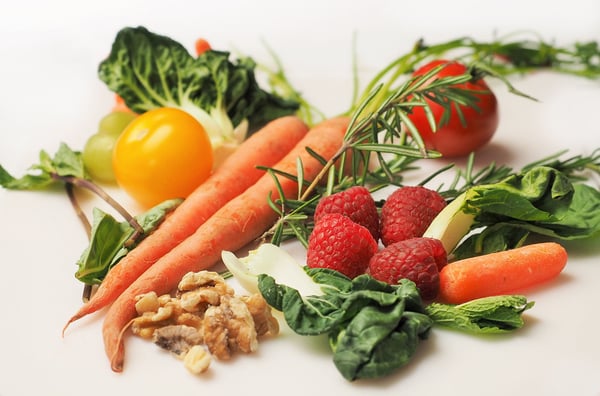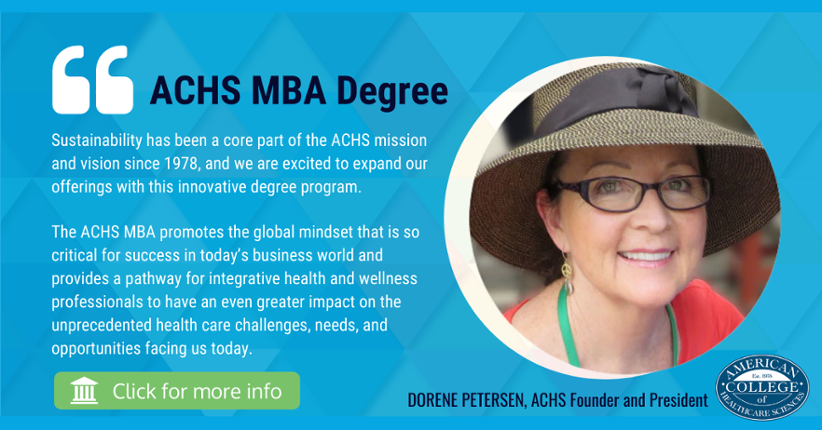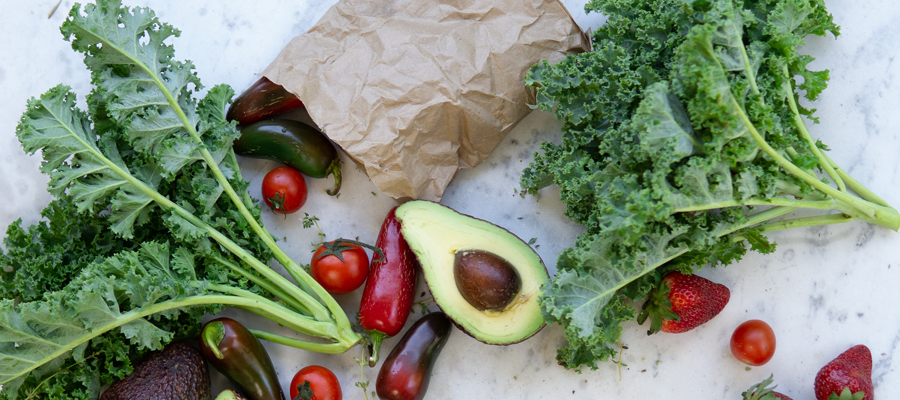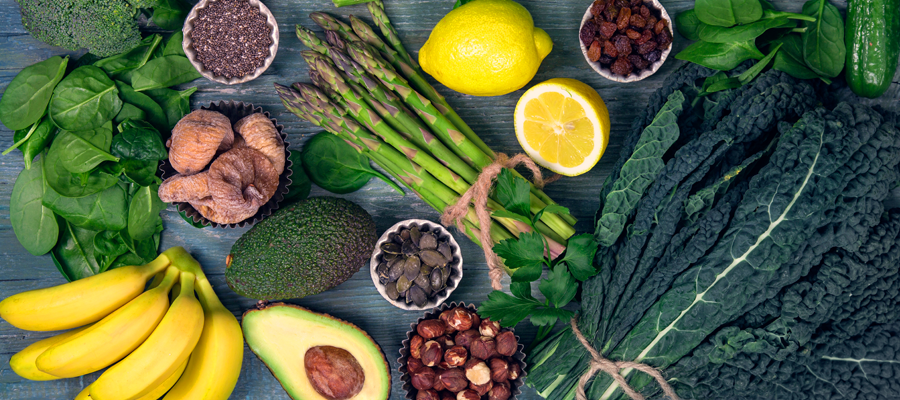
Copyright: Pexels.com
Movements such as Meatless Monday, promoting avoidance of animal products one day a week, have grown rapidly. Founded in 2003 in association with the Johns Hopkins School of Public Health, the organization has increased to 44 countries. The decision to have even just one day a week free of eggs, dairy, and meat of all kinds is a positive step toward creating better health. Meatless Monday awareness day on April 8th, 2019 serves as a reminder that each one of us can actually help save our precious planet by saying no to animal foods or implementing a flexitarian diet.
Environmental impact of a vegan diet
Measuring the health and environmental effects of just a single day on a vegan diet might be difficult, but there are some clues thanks to Kathy Freston, who previously published data detailing what the impact would be if every American citizen adopted a vegetarian diet for 24 hours. The data indicated that we would save 100 billion gallons of water, enough to supply all the homes in New England for almost four months; 1.5 billion pounds of crops that would otherwise be fed to livestock—enough to feed the state of New Mexico for more than a year; 70 million gallons of gas, enough to fuel all the cars of Canada and Mexico with plenty to spare; 3 million acres of land, an area more than twice the size of Delaware; 33 tons of antibiotics; 3 million tons of soil erosion and $70 million in resulting economic damages; and 4.5 million tons of animal excrement, which would eliminate almost 7 tons of ammonia emissions, a major air pollutant. Keep in mind, the impact of going full vegan would be even greater than going vegetarian. Another method of assessing the effects of a vegan diet is to use a vegan calculator. 
Copyright: Pexels.com
Consider a Flexitarian diet if you aren’t ready to go vegetarian or vegan.
Experts agree that if you are not ready to give up meat entirely, a flexitarian diet, which is predominantly plant-based, can help. This diet includes plenty of fruits, vegetables and plant-based protein sources including legumes, soybeans and nuts, along with modest amounts of poultry, fish, milk and eggs, and small amounts of red meat.
Vegetarian and vegan diets would result in even lower greenhouse gas emissions, but a flexitarian diet is the least stringent that is both healthy and would reduce greenhouse gas emissions enough for us to stay within environmental limits. Just how "flexitarian" you wish to be can be flexible, too. The key is not just eliminating meat but swapping in plant-based proteins, including beans and lentils.
A worldwide initiative
Scientists worldwide are saying a "great food transformation" is urgently needed by 2050 to save both lives and the planet. The plan asks people to adopt a mostly plant-based diet by significantly reducing their consumption of red meat and animal products, and suggests a total overhaul of global food production systems, a major source of greenhouse gas emissions. "How we grow, process, transport, consume and waste food is hurting both people and planet," according to EAT, a Stockholm-based nonprofit and organizer of the 37-person commission that wrote the proposal.
The report was published this week in the medical journal Lancet, and contributors include experts from Harvard University, Johns Hopkins University and leading schools around the world. Authors say that by developing a food system framework around healthy diets that also are environmentally sustainable, people can achieve "win-win diets" that can be scaled and adapted to accommodate all cultures. The authors note their proposal aligns with United Nations Sustainable Development Goals, which address hunger, food and water waste and action on climate change, among other global challenges. Those challenges are exacerbated by the need to feed a growing global population, which is expected to reach 9.8 billion by 2050.
In 2006, the UN calculated that the combined climate change emissions of animals bred for their meat were about 18% of the global total – more than cars, planes and all other forms of transport put together. Water shortage can be reduced by eating less meat. Vegetarian author John Robbins calculates it takes 60, 108, 168, and 229 pounds of water to produce one pound of potatoes, wheat, maize and rice respectively. But a pound of beef needs around 9,000 liters – or more than 20,000 lbs. of water.
It’s exciting to learn that each one of can make a difference toward saving our Mother Earth from global warming.
Do you want to join the global holistic health initiative and connect with holistic heroes worldwide?
About American College of Healthcare Sciences
 Founded in 1978, ACHS.edu is a Portland, Ore.-based, accredited college offering online, on-campus, and study abroad integrative health education. With undergraduate and graduate degrees, diplomas, certificates, and continuing education units in integrative health, ACHS makes holistic health and wellness education accessible to a diverse community, including healthcare professionals, military students, stay-at-home parents, and lifelong learners. Specializations include aromatherapy, herbal medicine, holistic nutrition, and integrative health. ACHS is a Certified B Corporation® and was named two of 100 Best Green Workplaces in Oregon 2017 by Oregon Business magazine. ACHS is also accredited by the Distance Education Accrediting Commission (DEAC), which is recognized by the U.S. Department of Education and by the Council for Higher Education Accreditation (CHEA). In response to our commitment to service members, veterans and military spouses, ACHS has been designated as one of the top 16% of military-friendly institutions in the U.S. for nine years in a row. For more information visit achs.edu.
Founded in 1978, ACHS.edu is a Portland, Ore.-based, accredited college offering online, on-campus, and study abroad integrative health education. With undergraduate and graduate degrees, diplomas, certificates, and continuing education units in integrative health, ACHS makes holistic health and wellness education accessible to a diverse community, including healthcare professionals, military students, stay-at-home parents, and lifelong learners. Specializations include aromatherapy, herbal medicine, holistic nutrition, and integrative health. ACHS is a Certified B Corporation® and was named two of 100 Best Green Workplaces in Oregon 2017 by Oregon Business magazine. ACHS is also accredited by the Distance Education Accrediting Commission (DEAC), which is recognized by the U.S. Department of Education and by the Council for Higher Education Accreditation (CHEA). In response to our commitment to service members, veterans and military spouses, ACHS has been designated as one of the top 16% of military-friendly institutions in the U.S. for nine years in a row. For more information visit achs.edu.
Blog References:
https://www.theguardian.com/lifeandstyle/2010/jul/18/vegetarianism-save-planet-environment
http://time.com/4266874/vegetarian-diet-climate-change/
https://www.forbes.com/sites/michaelpellmanrowland/2018/06/12/save-the-planet/#1341bce53c81
http://time.com/4220270/vegetarianism-history-meathooked/
http://time.com/4244617/climate-change-dietary-patterns/
https://www.cnn.com/2017/12/25/health/meatless-food-resolution-drayer/index.html








